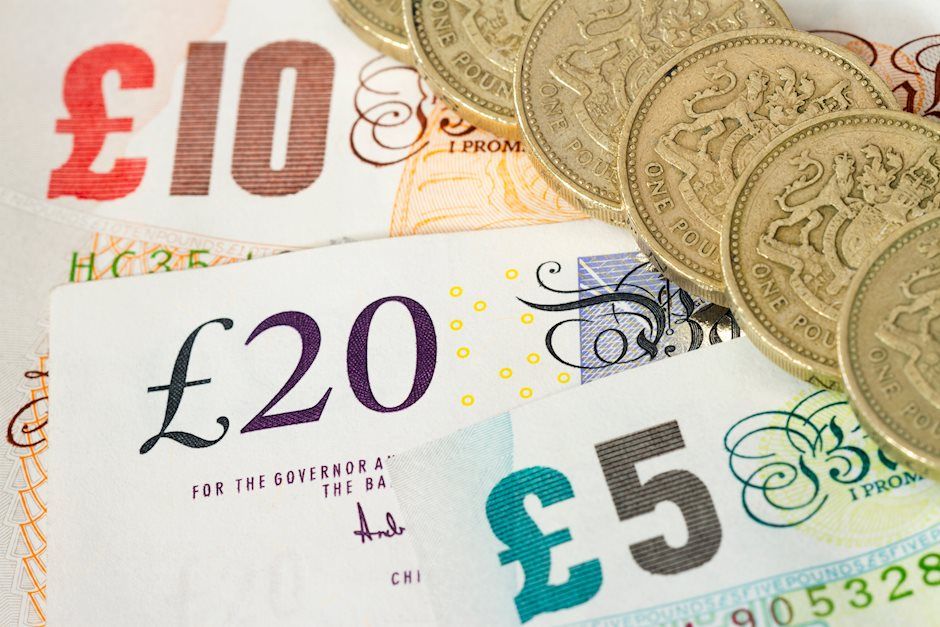Pound Sterling eyes more upside as core inflation remains hot
- Pound Sterling starts moving as core inflation supports further policy tightening.
- UK’s core inflation remains stronger due to robust wage growth.
- More interest rate hikes from the BoE seem required so that inflation returns to 2%.

The Pound Sterling (GBP) is strengthening, inspired by persistently high core inflation data. The GBP/USD pair delivers a consolidation breakout as the Core Consumer Price Index (CPI) remains stable at 6.9%, higher than the forecast of 6.8%. Robust wage growth keeps consumer spending momentum intact and core price pressure near its immediate peak of 7.1%.
The United Kingdom’s stubborn core CPI is enough to force the Bank of England (BoE) to consider a continuation of the aggressive rate-tightening spell. The UK’s central bank has already raised interest rates to 5.25%, and now further policy tightening appears more likely. Meanwhile, headline inflation contracted in July as firms passed on the benefits of cheap oil prices to end consumers.
Daily Digest Market Movers: Pound Sterling remains bullish due to sticky core inflation
- Pound Sterling climbs above 1.2700 after mixed United Kingdom inflation data for July.
- Monthly headline inflation contracted by 0.4%, slower than expectations of 0.5%. In June, headline CPI expanded by 0.1%.
- Annual headline inflation softened to 6.8%, as expected by investors, versus. June’s reading of 7.8%. It seems that firms started passing the benefit of cheap oil on to end consumers.
- Core inflation that excludes volatile oil and food prices turned out persistent despite aggressive monetary policy by the Bank of England. The economic data remained sticky at 6.9% while investors forecasted a marginal decline to 6.8%.
- UK core inflation is marginally lower than its immediate peak of 7.1% and is sufficient to force BoE policymakers to raise interest rates further.
- Stubborn core inflation exposes BoE to raise interest rates to 6%.
- It seems that strong wage growth has elevated consumer spending due to higher disposable income.
- On Tuesday, the Pound Sterling was decently bought by market participants as robust wage growth offsets disappointing labor market data.
- April-June quarter’s Average Earnings Excluding Bonuses rose to 7.8% vs. a downwardly revised prediction of 7.4%. Earnings data including bonuses jumped significantly to 8.2% in the same period, considerably higher than the consensus of 7.3%.
- UK’s Office for National Statistics (ONS) reported that the labor market witnessed lay-offs of 66K in June while Reuters forecasted fresh additions of 75K job seekers. In May, the ONS agency reported an increase in new payrolls by 102K.
- Claimant Count Change for July rose sharply by 29K, higher than the 16.2K jobless claims recorded in June. On the contrary, investors forecasted a decline in the number of claims by 7.3K.
- The second-quarter Unemployment Rate rose to 4.2% vs. the estimates and the former release of 4.0%.
- Assessing the UK jobs report, UK Minister for Employment, Guy Opperman MP told FXStreet: "Our jobs market continues to show its strength with employment at near record levels and inactivity down by over 300,000 since the pandemic peak. Combined with falling inflation and our package of reforms to remove barriers to work, we are on the right path to drive down household costs and grow our economy."
- The US Dollar Index (DXY) struggles to sustain above 103.00 as the Federal Reserve (Fed) is expected to keep interest rates unchanged in September’s monetary policy meeting.
- Per the CME FedWatch Tool, less than 10% chances are in favor of a 25 basis point (bp) interest-rate hike in September’s policy meeting.
- The US Dollar remained sideways on Tuesday despite robust consumer spending momentum in July, reported by the US Census Bureau.
- The economic data rose by 0.7% vs. expectations of 0.4% and the former release of 0.2% amid higher disposable income due to sustained wage growth.
- Minneapolis Fed President Neel Kashkari on Tuesday said that while the US central bank has made some progress in its inflation fight, interest rates may still need to go higher to finish the job.
Technical Analysis: Pound Sterling rapproaches 1.2800
The Pound Sterling rose sharply after the UK’s core inflation remained high in July. The Cable seems confident above the round-level resistance of 1.2700 and is expected to test the three-day high around 1.2750. The asset has recovered to near the 50-day Exponential Moving Average (EMA) around 1.2740 but is still trading below the 20-day EMA.
The Relative Strength Index (RSI) (14) has dropped to near 40.00. This would be a make-or-break level for the momentum oscillator as a slippage below the same will activate the bearish impulse.
BoE FAQs
What does the Bank of England do and how does it impact the Pound?
The Bank of England (BoE) decides monetary policy for the United Kingdom. Its primary goal is to achieve ‘price stability’, or a steady inflation rate of 2%. Its tool for achieving this is via the adjustment of base lending rates. The BoE sets the rate at which it lends to commercial banks and banks lend to each other, determining the level of interest rates in the economy overall. This also impacts the value of the Pound Sterling (GBP).
How does the Bank of England’s monetary policy influence Sterling?
When inflation is above the Bank of England’s target it responds by raising interest rates, making it more expensive for people and businesses to access credit. This is positive for the Pound Sterling because higher interest rates make the UK a more attractive place for global investors to park their money. When inflation falls below target, it is a sign economic growth is slowing, and the BoE will consider lowering interest rates to cheapen credit in the hope businesses will borrow to invest in growth-generating projects – a negative for the Pound Sterling.
What is Quantitative Easing (QE) and how does it affect the Pound?
In extreme situations, the Bank of England can enact a policy called Quantitative Easing (QE). QE is the process by which the BoE substantially increases the flow of credit in a stuck financial system. QE is a last resort policy when lowering interest rates will not achieve the necessary result. The process of QE involves the BoE printing money to buy assets – usually government or AAA-rated corporate bonds – from banks and other financial institutions. QE usually results in a weaker Pound Sterling.
What is Quantitative tightening (QT) and how does it affect the Pound Sterling?
Quantitative tightening (QT) is the reverse of QE, enacted when the economy is strengthening and inflation starts rising. Whilst in QE the Bank of England (BoE) purchases government and corporate bonds from financial institutions to encourage them to lend; in QT, the BoE stops buying more bonds, and stops reinvesting the principal maturing on the bonds it already holds. It is usually positive for the Pound Sterling.
Author

Sagar Dua
FXStreet
Sagar Dua is associated with the financial markets from his college days. Along with pursuing post-graduation in Commerce in 2014, he started his markets training with chart analysis.
















